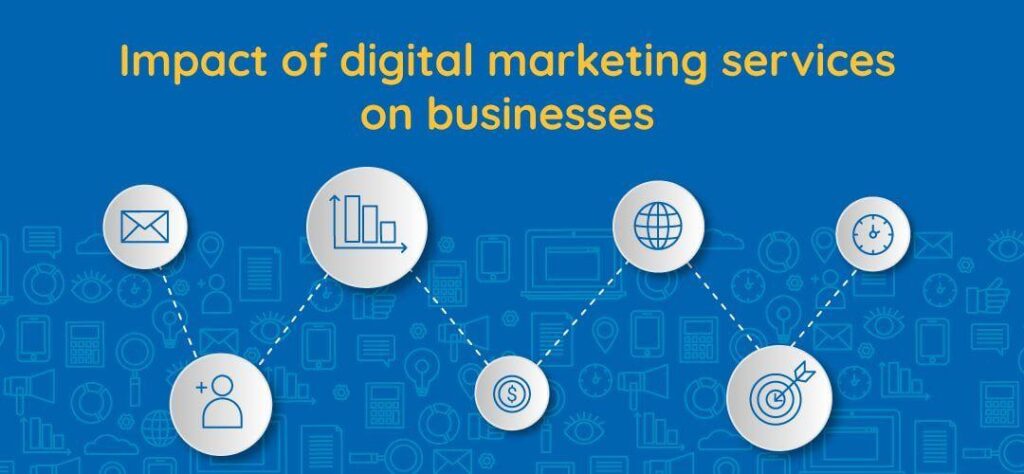How does Digital Marketing Affect Consumer Behaviors?

The rise of the internet and the widespread adoption of digital technologies have transformed the marketing landscape, with digital marketing becoming an essential part of many businesses’ overall marketing strategy. Digital marketing refers to the use of various online channels and platforms, such as social media, search engines, email, and websites, to promote products or services. The increasing use of digital marketing has had a significant impact on consumer behavior, influencing how consumers make purchasing decisions, how they interact with brands, and how they perceive advertising.
In this article, we will explore how digital marketing affects consumer behavior, the different ways in which it influences purchasing decisions, and the impact it has on customer relationships.
7 Affects of Digital Marketing on Consumer Behaviors…
- Increased access to information One of the significant ways in which digital marketing affects consumer behavior is by providing consumers with more information about products and services. With just a few clicks, consumers can access a wealth of information about a brand, its products, and its competitors. This has made consumers more informed and educated, enabling them to make more informed decisions.
- Personalization Digital marketing also allows for greater personalization in marketing messages. By using data analytics and customer profiling, marketers can tailor their messages to specific customer groups, making them more relevant and engaging. This personalization not only increases the chances of conversion but also enhances the overall customer experience.
- Social media influence Social media has become an integral part of many people’s lives, and businesses have taken advantage of this by using social media to promote their products and services. Social media influencers, individuals with a large following on social media, have also become a powerful force in digital marketing. These influencers can sway consumer behavior and drive sales by promoting products to their followers, who trust their opinions and recommendations.
- Increased engagement Digital marketing has also made it easier for brands to engage with their customers. Social media platforms, email marketing, and other digital channels allow for two-way communication between brands and customers, enabling brands to gather feedback, respond to customer queries, and build stronger relationships with their customers.
- Reduced costs Digital marketing is often more cost effective than traditional marketing methods. Digital channels are generally less expensive than traditional advertising methods like television or print media. This has made it easier for small businesses to compete with larger businesses, leveling the playing field and allowing them to reach a broader audience.
- Improved targeting Digital marketing allows for more precise targeting of specific customer groups. Through data analytics, businesses can identify and target customers based on their interests, demographics, and behavior. This not only saves businesses money but also increases the chances of converting leads into customers.
- Increased convenience Digital marketing has made it easier for consumers to shop online, with e-commerce platforms providing a convenient and hassle-free shopping experience. Consumers can shop from the comfort of their homes, access a wider range of products, and compare prices across multiple retailers.
Conclusion: Digital marketing has had a significant impact on consumer behavior, transforming the way businesses promote their products and how consumers make purchasing decisions. With the rise of digital marketing, consumers have become more informed, engaged, and empowered, leading to a more personalized and convenient shopping experience. As businesses continue to embrace digital marketing, it is likely that its influence on consumer behavior will continue to grow.
Our Social Media Link:

